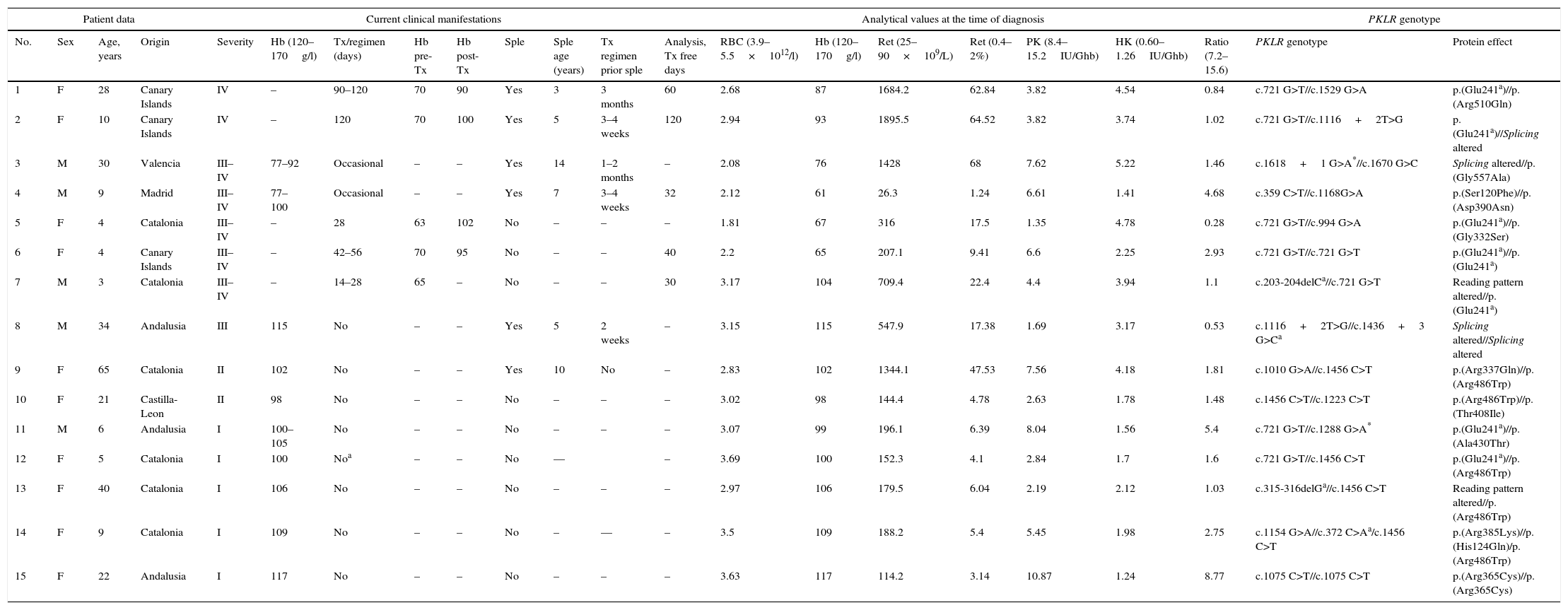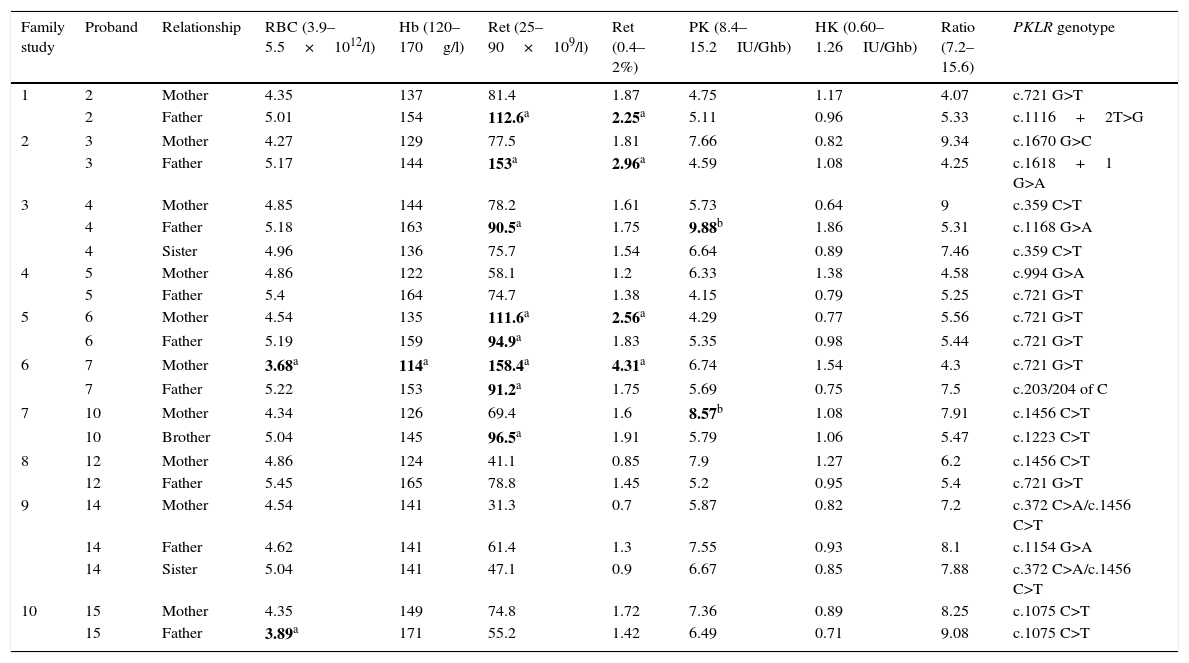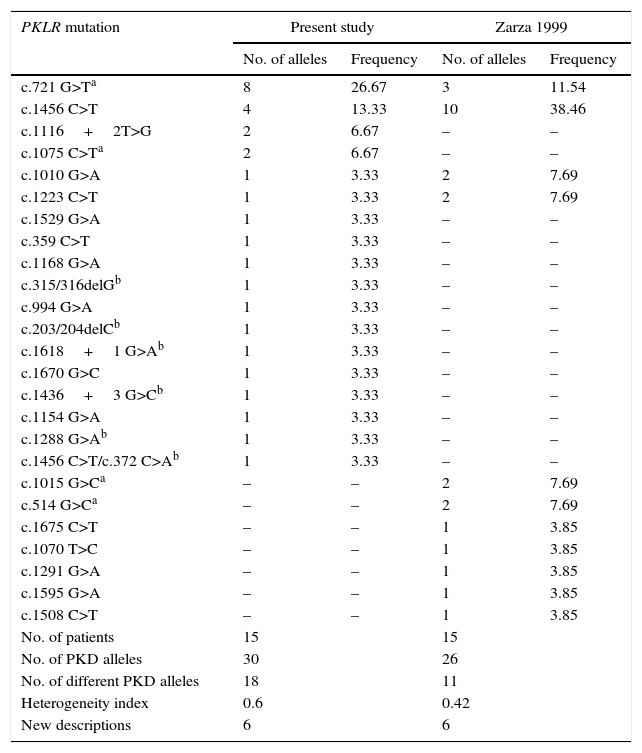Pyruvate kinase deficiency (PKD) is a rare, inherited disease causing chronic hemolysis and anaemia of varying intensity. The genetic heterogeneity of PKD is high and, to this day, over 240 different mutations have been identified.
Patients and methods15 unrelated patients affected by PKD have been studied. PKLR gene sequencing was performed by SANGER, including the determination of promoter regions, exonic, intronic flanking and 3′ UTR.
ResultsPatients were classified into 3 groups based on the intensity of their clinical symptoms: (I) severe and very severe (8 patients); (II) moderate (2 patients), and (III) mild (5 patients). Six out of the 18 alleles found were new mutations which had not been described previously, with the PKLR c.721G>T mutation being the most prevalent (26.67%), followed by the PKLR c.1456C>T mutation (13.33%).
ConclusionsIn Spain, the genetic heterogeneity of PKLR is still high but differs from that observed in the previous study carried out in 1998. Total PKLR gene sequencing is necessary for the characterisation of all patients with PKD and for genetic counselling.
El déficit de piruvato cinasa (DPK) es una enfermedad hereditaria rara, que cursa con hemólisis crónica y anemia de intensidad variable. Su heterogeneidad genética es elevada, habiéndose descrito unas 240 mutaciones diferentes.
Pacientes y metodologíaSe han estudiado 15 pacientes con DPK en los que se ha secuenciado la totalidad del gen PKLR, incluyendo las regiones promotora, exónicas, intrónicas flanqueantes y 3′UTR.
ResultadosSegún la intensidad del cuadro clínico, los pacientes se han clasificado en 3 grandes grupos: I) grave y muy grave (8 pacientes); II) moderado (2 pacientes), y III) leve (5 pacientes). Se han identificado 18 alelos diferentes, de los que 6 son mutaciones nuevas, no descritas con anterioridad, siendo la mutación PKLRc.721G>T la más prevalente (26,67%), seguida de la mutación PKLR c.1456C>T (13,33%). Trece de los 15 pacientes mostraron un genotipo doble heterocigoto y 2 homocigoto.
ConclusionesEn España, la heterogeneidad del patrón genético de la PKLR continúa siendo elevada, aunque algo diferente a la observada en un estudio anterior (1998). Se concluye que la secuenciación total del gen PKLR es imprescindible tanto para la caracterización de los pacientes como para la realización del consejo genético.









